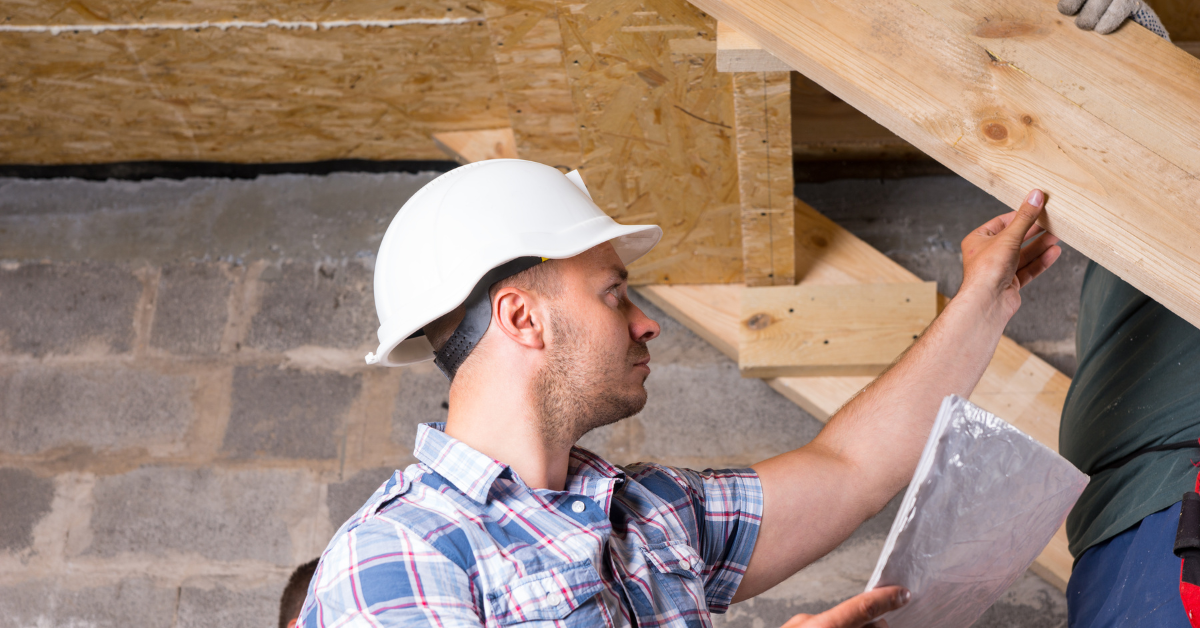The Essential Guide to Home Inspections in North Texas
Why Every Home Buyer in McKinney, Prosper, Celina, Aubrey, Frisco, Anna, Melissa, and Princeton Needs a Home Inspection
When venturing into the exciting journey of homeownership in North Texas, one critical step that cannot be overlooked is scheduling a home inspection. As a seasoned Realtor in McKinney, TX, I cannot stress enough the importance of a thorough and professional inspection of the property you’re considering calling home.
Choose the Right Home Inspector
The moment your home purchase contract is signed, it’s time to pick up the phone and book a home inspection. Remember, the value of a home inspection is directly tied to the expertise of the inspector. Hence, it’s vital to solicit recommendations from trusted sources—friends, family, and your real estate agent—who have firsthand experience with the inspector’s work.
North Texas has no shortage of inspectors, so take advantage of online reviews to gauge their reputations. While home inspection costs can range from $400 to $600, this is not the time to skimp. A highly-recommended inspector, though perhaps not the cheapest, can save you from costly surprises down the line.
What Does a Good Home Inspector Do?
An experienced home inspector will meticulously review all major components of your prospective home, from the roof to the foundation, ensuring no hidden issues lurk within the heating and cooling systems, electrical system, and more. They’ll spot potential problems, such as a water heater nearing the end of its life or termite damage, examining all accessible areas for any signs of trouble.
Inspections can take several hours, and while your presence isn’t mandatory throughout, being there towards the end is beneficial. This allows the inspector to walk you through their findings and address any immediate concerns. You’ll then receive a detailed written report, often accompanied by photographs, that outlines all noted deficiencies.
Interpreting the Home Inspection Report
Discerning which issues in the report are major and which are minor is your next task. Inspectors will list all deficiencies, but it’s crucial to focus on significant, costly, or safety-related ones. Don’t be swayed by minor issues that are easily fixed, such as a cracked electrical wall plate—a simple, inexpensive repair.
In new constructions, deficiencies are still possible. That’s why I advise clients to focus on substantial concerns and negotiate with sellers for repairs or evaluations by specialists for essential systems like the foundation or HVAC. These evaluations can prevent future headaches and save you a significant amount of money.
Negotiating Repairs After the Inspection
Once you’ve identified the major issues, your agent will draft an addendum to the sales contract requesting specific repairs. It’s common practice to ask sellers to address or further investigate significant problems. Remember, negotiation is part of the process, and not all repair requests need to be minor or cosmetic—it’s about ensuring the home’s essential systems are in good working order.
Sometimes, buyers may opt for a price reduction or credit towards closing costs instead of repairs, allowing them to manage the fixes post-closing. This can be a win-win for both parties, simplifying the transaction and giving buyers control over the repair process.
The Special Case of New Construction Homes
Even if you’re buying a new home, I always recommend an inspection. Builders may assure you it’s unnecessary, citing home warranties, but an inspector can catch issues overlooked by builders and city inspectors. For homes under construction, consider a phased inspection, which occurs at multiple stages of the build, ensuring each phase meets your standards. While costlier, this type of inspection can protect you from significant construction errors.
A Real-Life Example of the Importance of Home Inspections
To illustrate the value of a home inspection, I once had a client interested in an older home with a pier and beam foundation. The inspector discovered improper leveling attempts with paint stir sticks—a cheap and inadequate solution. The sellers refused to address this, and my client wisely chose another property. This decision saved them from incurring massive future repair costs, all thanks to a thorough $400 inspection.
Home Inspections: Your Assurance for a Sound Investment
Obtaining a home inspection offers peace of mind, confirming the condition of your potential investment and revealing any hidden issues. Given that purchasing a home is one of the most significant financial decisions you’ll make, the importance of this step cannot be overstated.
Frequently Asked Questions About Home Inspections
Q: How long does a home inspection take?
A: Most home inspections take a few hours to half a day, depending on the home’s size and complexity.
Q: Should I be present during the home inspection?
A: You don’t need to be there for the entire inspection, but it’s advisable to attend the final part when the inspector reviews their findings with you.
Q: What’s the difference between a regular home inspection and a phased inspection?
A: A regular home inspection is a thorough, one-time evaluation of a home’s condition, typically conducted after a buyer makes an offer. A phased inspection, on the other hand, occurs at several stages during the construction of a new home. It allows the buyer to ensure that each phase of construction meets their standards and that any issues are addressed before the next phase begins.
Q: Can I request repairs or a price reduction based on the home inspection results?
A: Yes, you can negotiate with the seller to request repairs, a price reduction, or a credit towards closing costs based on the findings of the home inspection. Your real estate agent can assist you in this process.
Q: What happens if I decide not to have a home inspection?
A: Skipping a home inspection is risky. Without it, you may not be aware of potential issues that could cost you a lot of money to repair after purchase. It’s a critical step in due diligence that provides valuable information about the home’s condition.
Q: Are there any parts of the home that are not covered by a standard home inspection?
A: Yes, standard home inspections have limitations. They typically do not include things like inside the walls, beneath the flooring, or other inaccessible areas. They also usually don’t cover specialized systems like septic tanks, wells, or swimming pools, although additional, specialized inspections can be arranged for these features.
Q: Is a home inspection the same as an appraisal?
A: No, a home inspection is not the same as an appraisal. An inspection focuses on the condition of the home and its systems, while an appraisal determines the home’s market value for the lender.
Final Thoughts on Home Inspections
Home inspections are a critical component of the home-buying process, offering a detailed look at the property’s condition and identifying any potential issues. While it may represent an additional cost upfront, the information gleaned from a home inspection can save you from expensive surprises down the road. Whether you’re buying an existing home or new construction, an inspection provides the assurance you need to proceed with confidence, knowing you’ve made a well-informed decision on your investment.


